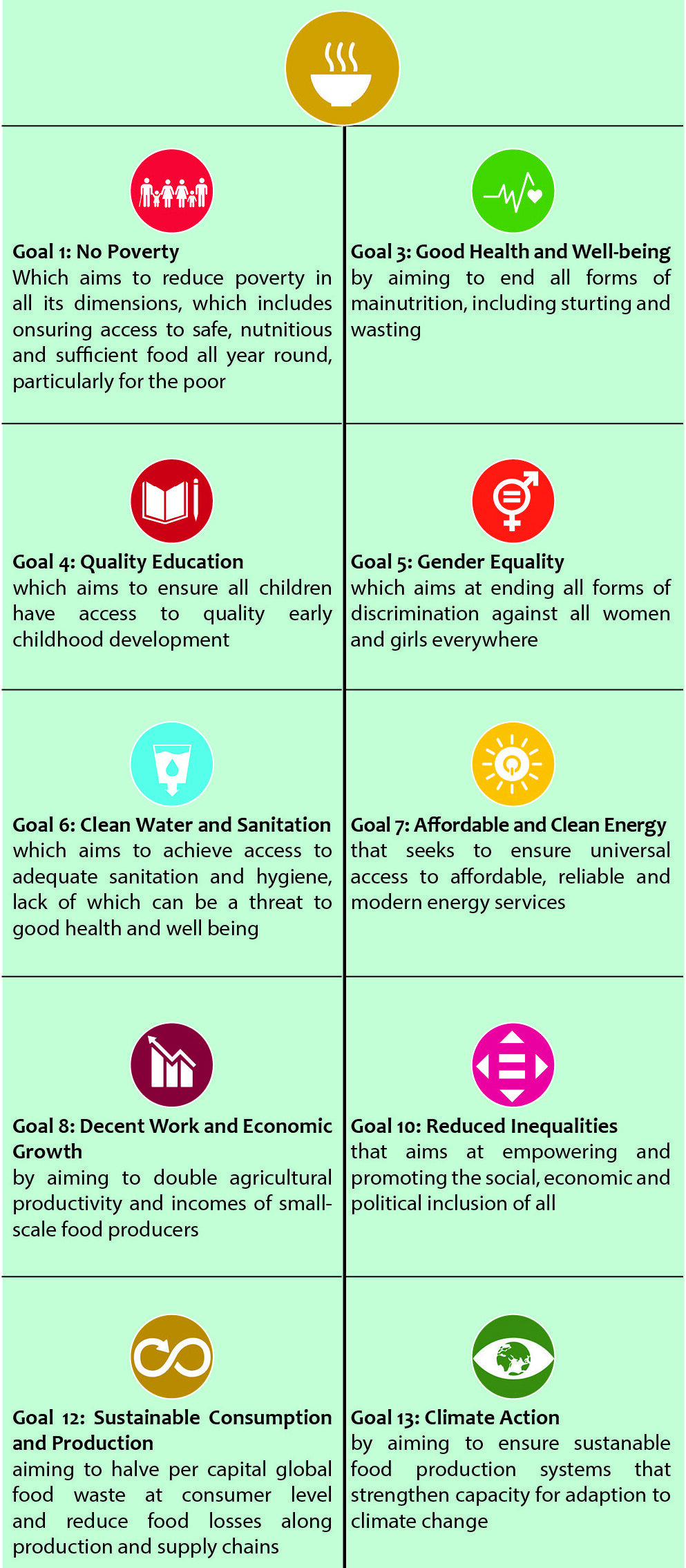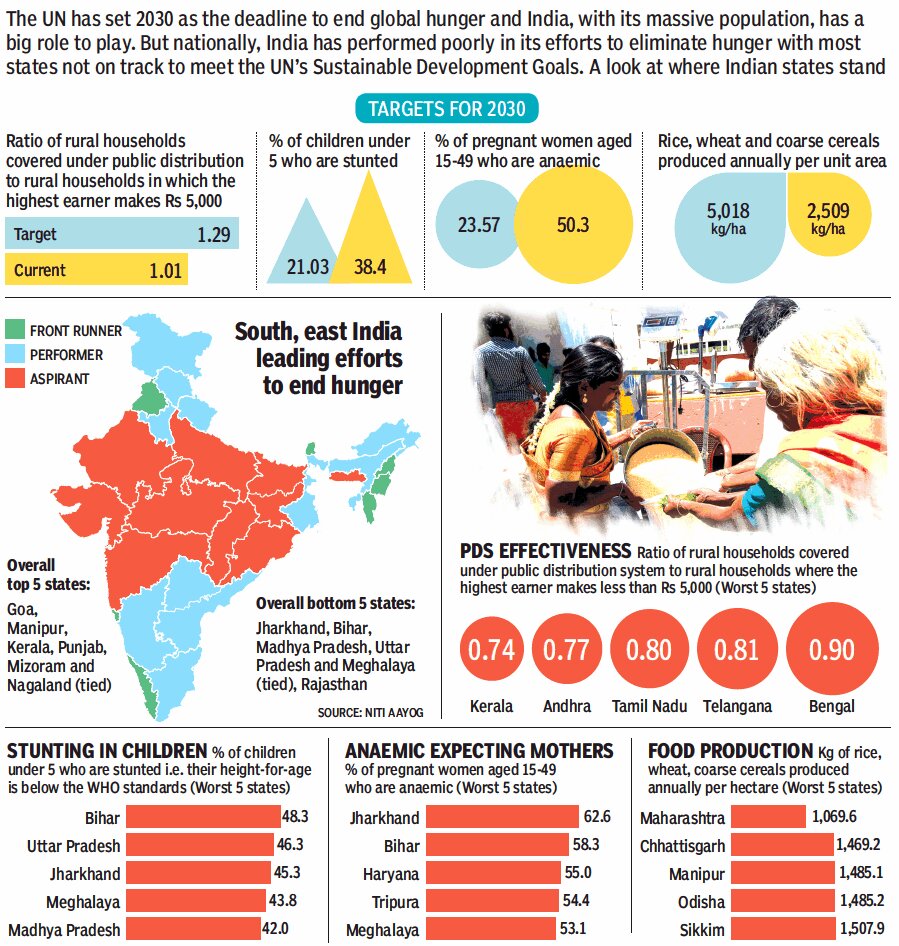India and the Hunger Fight
The United Nations has set the year 2030 as the deadline to end global hunger and India as of now has performed poorly in its efforts to eliminate hunger with most states not on track to meet the UN’s Sustainable Development Goal-2 (SDG-2).
Sustainable Development Goal-2 (Zero Hunger)
- Goal 2 seeks sustainable solutions to end hunger in all its forms by 2030 and to achieve food security.
- The aim is to ensure that everyone everywhere has enough good-quality food to lead a healthy life.
- Achieving this Goal requires better access to food and the widespread promotion of sustainable agriculture. This entails improving the productivity and incomes of small-scale farmers by promoting equal access to land, technology and markets, sustainable food production systems and resilient agricultural practices.
Goal-2 is closely related with other goals as below
India’s Performance (NITI Aayog Baseline Report, 2018)
Government of India Initiatives
- The National Nutrition Strategy aims to accelerate the decline of malnutrition in India. The National Nutrition Mission monitors growth of children, as well as checks the pilferage of food rations provided at Anganwadi Centres.
- POSHAN Abhiyaan, launched in 2017-18, aims to reduce stunting, under-nutrition, anemia and low birth weight babies through synergy and convergence among different programmes, better monitoring and improved community mobilisation.
- Antoydaya Anna Yojana (AAY) aims to provide food at subsidized prices to poor families.
- The Integrated Child Development Scheme (ICDS) envisages comprehensive early childhood care and development by focussing on children in the age group of 0-6 years, pregnant women and adolescent girls.
- Mid-day Meal (MDM) scheme aims to improve nutritional levels among school children which also has a direct and positive impact on enrolment, retention and attendance in schools.
- Under the Pradhan Mantri Matru Vandana Yojana (PMMVY), Rs.6,000 is transferred directly to the bank accounts of pregnant women for availing better facilities for their delivery.
- The National Mission on Agriculture Extension and Technology enables delivery of appropriate technologies and improved agronomic practices for farmers.
- The National Mission on Sustainable Agriculture and the National Food Security Mission aims to enhance agricultural productivity, and the Pradhan Mantri Krishi Sinchayee Yojana (PMKSY) aims to improve water-use efficiency.

